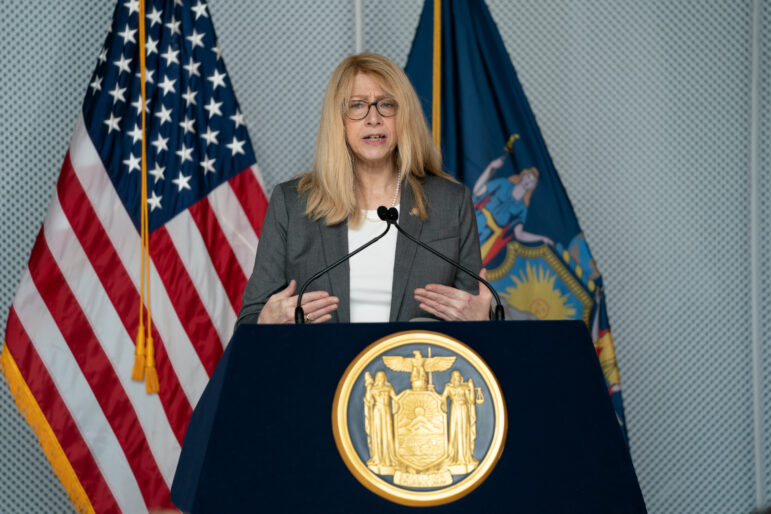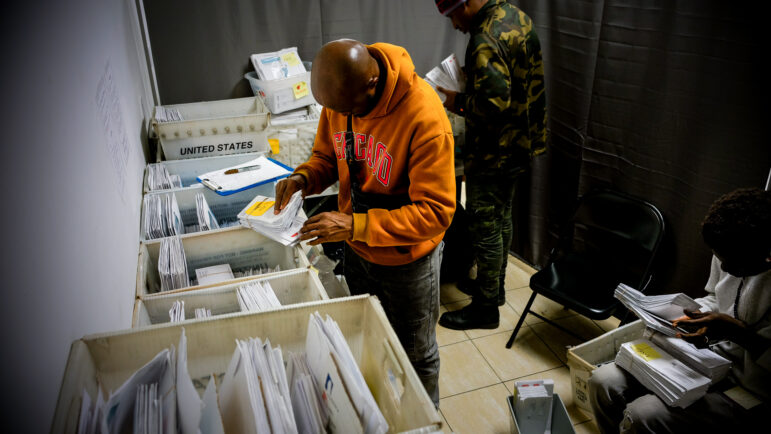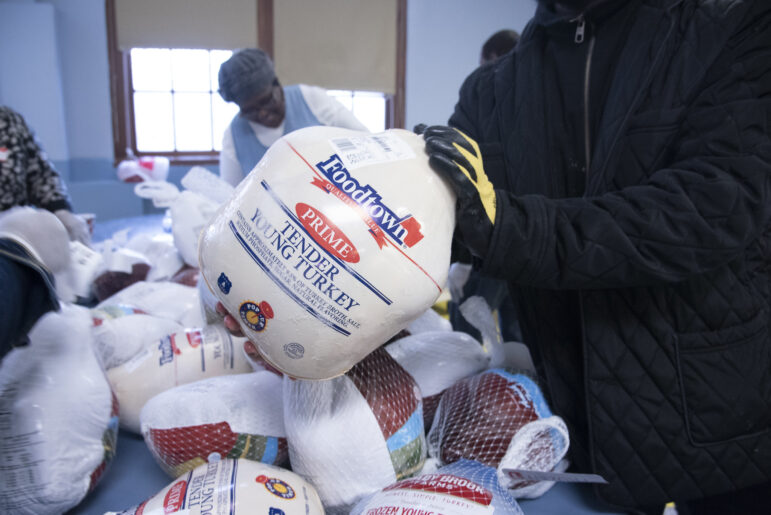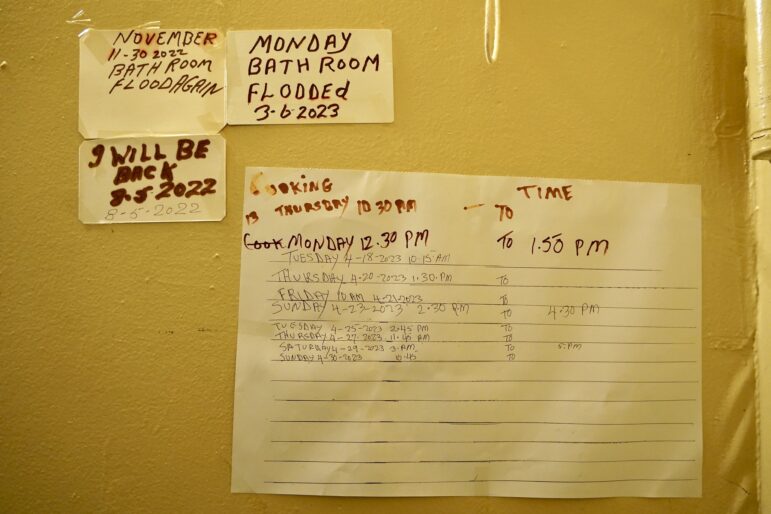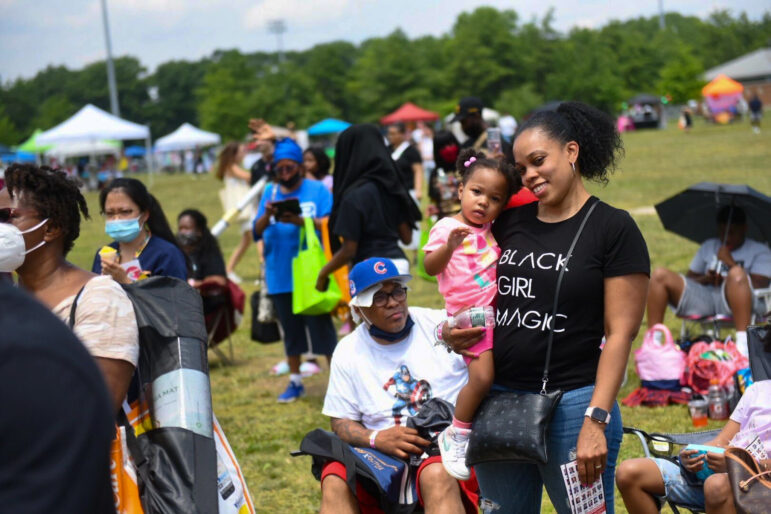While many parts of last week’s Democratic primary were painfully familiar—low voter turnout, pamphlet-strewn sidewalks, sleepy poll attendants—the election did deliver a few surprises. A few City Council incumbents fell to challengers, Asian-American candidates made history in several races and runoffs were declared in two citywide contests.
The primary also marked the political debut of the Freelancers Union, which is trying to forge an identity as a force in local campaigns. Within the span of a few months this year, Freelancers Union members launched a Political Action Committee, endorsed 22 candidates and organized phone banks and canvass teams. The Freelancers Union, which has grown to over 75,000 members in New York City, is taking a cue from traditional labor organizations that are close to assuming kingmaker status in city politics.
“What we’re doing is part of a larger strategy, based on the premise that we need to build a better social safety net,” says Sara Horowitz, who founded the Freelancers Union in 1995. Members of the Union do not pay dues, have scattered worksites and pursue widely divergent professions. They do, however, share many needs, not the least of which is securing basic benefits like health and unemployment insurance. In 2001 the Union began to offer an insurance pool so that individual workers could access benefits at a group rate (fees from those services fund the union). “Advocacy and direct services go hand in hand,” says Horowitz. “When we provide direct services, we learn about the larger issues affecting people. We started the PAC because if you want change, you have to be politically involved.”
In July, the Freelancers Union scored its first legislative victory when Governor Paterson signed a law that eliminates the Unincorporated Business Tax for those making under $100,000 a year. The UBT imposes an extra levy on the income of independent workers, and has long been a thorn in the side of struggling freelancers. Other items on the agenda include securing government support for freelancers seeking to recover unpaid wages and a law that would let freelancers set aside pre-tax income as a form of unemployment insurance.
Horowitz is a child of the labor movement—her dad and grandfather both worked for unions—and she cut her teeth as an organizer with 1199 SEIU, the national healthcare workers union. 1199 sets a broad-shouldered example for any union aspiring to political influence. With over 250,000 members in the five boroughs, their support can swing local elections that often turn on a handful of votes. 1199’s New York City office includes full-time political staffers and a permanent call center. On Primary Election Day, 1199 flooded the city with hundreds of volunteers, including 150 canvassers to pull for a single City Council candidate, Jumaane Williams in Flatbush, Brooklyn (he defeated incumbent Kendall Stewart).
1199 is not alone in its clout. Labor unions “have, in effect, replaced political parties as the main organizers of voter contact and get out the vote efforts in New York City,” says John Mollenkopf, director of CUNY’s Center for Urban Research. Bands of union volunteers are a common sight in battleground districts, whether they’re sporting the orange and purple colors of the SEIU or the lumberjack boots of the United Brotherhood of Carpenters. Support from the labor-backed Working Families Party was key to Bill de Blasio’s upset first-place finish in the race for public advocate.
How does a motley collection of writers, graphic designers, landscapers, nannies and other self-employed workers insert itself into this landscape? Especially one whose financial heft—the PAC had $16,839 on hand at last count—is dwarfed by that of other unions, like 1199, whose PAC has around $5.5 million in the bank? Freelancers Union leaders argue that independent-mindedness does not preclude solidarity, and that in competitive elections, even a small organization can attract candidates’ attention.
Over the course of the campaign season, some 90 volunteers turned out to call other members or pass out literature. One of them was Barbara Thau, a business journalist who lost her magazine staff position last May. “I’ve noticed in my four months as a freelancer that there is a certain feeling of camaraderie,” says Thau. “I think that needs to be exploited. We should have co-op health care, co-op work spaces. This idea of freelance workers as a community is still in its infancy.”
Thau, who spent most of her volunteer time calling other Freelancers Union members on behalf of comptroller candidate David Yassky, says that most were informed and eager to talk politics. “I was really impressed,” she says. “For freelancers, being informed is a matter of survival, because we don’t have the safety net you get with a full-time job.”
Such a politically active membership may explain why, despite the relatively modest size of its get out the vote operation, the Freelancers Union drew serious attention from candidates this election season. Every Democratic candidate for public advocate, and all but one of the comptroller candidates, attended the Union’s member forum last July. “In less than one calendar year we’ve seen a huge shift,” says Horowitz. “We’re on the checklist of all the politicians. There’s so much more appreciation of freelancers in this city—you can’t be a candidate and not acknowledge us.”
How to measure the value of a Freelancers Union endorsement is less clear. The PAC picked a winner in de Blasio, and 14 of the Council candidates it endorsed in the primaries won, while six lost. Both Bill Thompson and Michael Bloomberg have actively courted the union, which will announce its mayoral endorsement early next month.
Many Freelancers Union picks overlap with those of the traditional unions, though one race stands apart. In the primary, the Freelancers Union poured the bulk of its volunteers and PAC monies into the campaign of Yassky, who is entering a runoff with John Liu for the office of comptroller. Most other unions, including 1199 and the Working Families Party, have thrown their weight behind Liu—making the September 29th runoff election an early opportunity for Freelancers Union members to test their mettle against a mighty union machine.
The author is a freelance journalist and a member of the Freelancers Union who has donated to the PAC.


